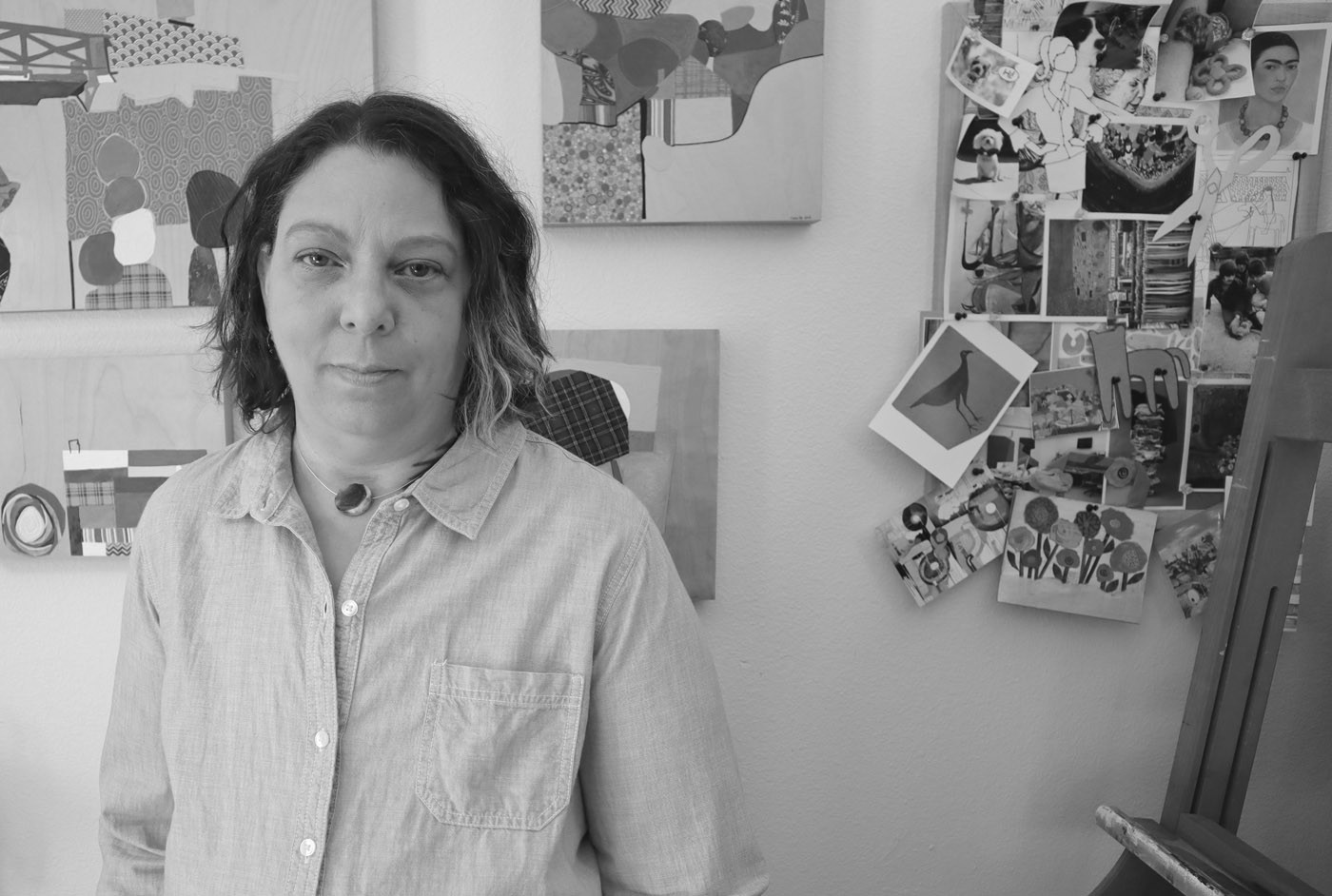We recently connected with Ayin Es and have shared our conversation below.
Ayin, we are so appreciative of you taking the time to open up about the extremely important, albeit personal, topic of mental health. Can you talk to us about your journey and how you were able to overcome the challenges related to mental issues? For readers, please note this is not medical advice, we are not doctors, you should always consult professionals for advice and that this is merely one person sharing their story and experience.
I have bipolar (1) disorder, but I lived the first half of my life without it being managed with medicine. Or I should say, I needlessly suffered for decades due to my refusal to take medication and even denied that I was mentally ill. All the while, I was a working musician (a drummer) and a part-time fine artist working toward a serious contemporary art career. I buried myself in work to a manic degree and did what I could to hide the countless symptoms I had, from the darkest states of depression to insomnia, paranoia, and anxiety, and attempted to tame my actions of acting out.
Not only was there a lot of stigma surrounding mental illness, but I had many false ideas about treatment. I also thought that having bipolar meant I was weak of mind. I was hard on myself and kept trying to control it on my own. I worried that taking pills would mess with my creativity and make me some kind of zombie, and this nonsense went on for years.
Instead, I worked myself into the ground, into burnout and depression, and finally, a breakdown. And one of the hardest things I ever had to do was ask for help. It might sound simple, but that was the key to what became a significant change in my life.
I’ve always been a big advocate for using art as therapy and healing, but it was only holding me up so much and for so long. I needed professional help, support, and new skills to apply to my life that would help me pace myself and balance my needs. I didn’t even know what my needs were at that time. I had to learn all of that. And this is an ongoing process as to how they are incorporated into my artistic endeavors, my inner self-talk, and how I plan my days, weeks, and months.
Appreciate the insights and wisdom. Before we dig deeper and ask you about the skills that matter and more, maybe you can tell our readers about yourself?
I’ve made art my entire life, but I’ve now been painting full-time since the late 1990s, after I retired from playing live music with bands. I’ve since been building a more serious career in contemporary art. As an artist, I’m self-taught and have been told I have a naïve hand. Over time, this has developed into something recognizable, but my style can be all over the place. I paint all kinds of subject matter—anything that interests me, from abstracts to landscapes, and somehow the work carries with it a consistent vibe, or voice. I love to use a lot of color, and everything looks rather cartoony. Sometimes it’s on purpose, and sometimes it just turns out that way.
I do like to experiment, however. I’m always looking to go out of my comfort zone and try to pay close attention to my instincts. I expect my gut to lead the way into new territory. That can either happen quickly or over time and practice.
I moved to Joshua Tree, California some years ago, and it started to really inform my work—both my abstracts and landscapes. Living here has inspired me to get even more in touch with my inner self, which in turn helps me to have a more direct line into my psyche.
In my last exhibit, “THIS LAND,” which addressed the immediate environment I live in, I’ve since begun a new painting series that is totally different. It is about rethinking past family photographs through a transgender and nonbinary lens. This series is called “Discarded Snapshots.”
I’ve also just launched a small book of drawings and watercolors that basically documents my transition and gender-affirming surgery. This is a printed book that I’ve entitled “Queersition.”
And later, at the end of next year, I plan to present a new solo show at Compound Yucca Valley, a local non-profit gallery.
Looking back, what do you think were the three qualities, skills, or areas of knowledge that were most impactful in your journey? What advice do you have for folks who are early in their journey in terms of how they can best develop or improve on these?
In thinking about this question long and hard, I’ve honed it down to these three qualities, which have been most important, for me anyway, along my path.
Perhaps, in no particular order, or maybe it should be (I’m not sure), but perseverance has been highly important. I’ve really given myself no other options than just to keep going in the face or absolutely anything. Even when I’ve been stuck in the deepest darkest hole of doubt and depression, I still go through the motions: painting, promoting, connecting, applying myself, trying, and staying true to my vision, even when it doesn’t feel great in those moments. I persevered anyway. I didn’t give up. It’s the only way through to the next day. Somewhere in the back of my brain, I know the darkness is temporary. I owe that awareness to medication and therapy.
The next skill, or I should say it’s a quality, not necessarily a skill, is being vulnerable. I think it’s the only way to be open to making authentic art. I might be open to getting hurt, exposing my raw nerves, but it’s the only way to connect to myself, my work, and others.
Expression is also key, but I’m not sure how to explain that one. I’m very expressive, and it’s become intuitive. It’s been a development over time, and I’ve gotten here from being vulnerable. I express myself in any and every way, through music and especially writing. I journal, write about my work, and write any kind of stream-of-consciousness about what I’m drawing or painting and what I’m thinking at the moment. I just pick up the pen or start typing out my thoughts and feelings and don’t pay attention to what comes out. It’s pure expression. Doing this allows me to do the same in drawing and painting.
My advice to anyone who wants to develop these skills would just be to put them into practice—daily. Write every day. Be open and humble, and take risks in order to be vulnerable because that’s the only way to do it. Share yourself with those you love in any way you know how. Listen to those who are talking to you and consider their feelings. That doesn’t mean to take everyone’s advice. Just be open, if that makes sense. And don’t give up on yourself. Believe in your work and keep going even when you think it’s shit. Just keep trying, keep your eyes on your own work, and things will get better over time. You will get stronger.
All the wisdom you’ve shared today is sincerely appreciated. Before we go, can you tell us about the main challenge you are currently facing?
The number one obstacle I face is still balancing my work life with self-care. While I am getting better at it all the time, I’ve always had issues with taking care of myself. I have a hard time relaxing both physically and mentally. I’ve attempted a number of solutions, and some have helped, while others have fallen off due to my inconsistency.
Therapy is the most helpful of all. I have done a lot of DBT skills after taking an 8-week workshop last year. DBT stands for dialectical behavioral therapy, which is a type of cognitive therapy directed to change your internal, negative thinking patterns. I have complex PTSD from childhood trauma, and it’s caused low self-worth. It’s not easy to form new habits when you’re used to a lifetime of negative self-talk, but it’s been helping.
Meditation would probably be helpful too, but that’s actually challenging for me; so is taking walks or even watching a movie. It’s hard for me not to do work of some kind because I disassociate when left to my own thoughts. I read a lot of books that address disassociation, which is what happens to a lot of trauma survivors with C-PTSD.
Lately, I’ve been reading a lot of Peter Levine, MD, who developed a therapeutic technique called somatic experiencing that gets one more in touch with the body. It’s specifically for trauma survivors, and it’s like a prerequisite to meditating. I’m hoping it will be helpful and get me to a better place.
Contact Info:
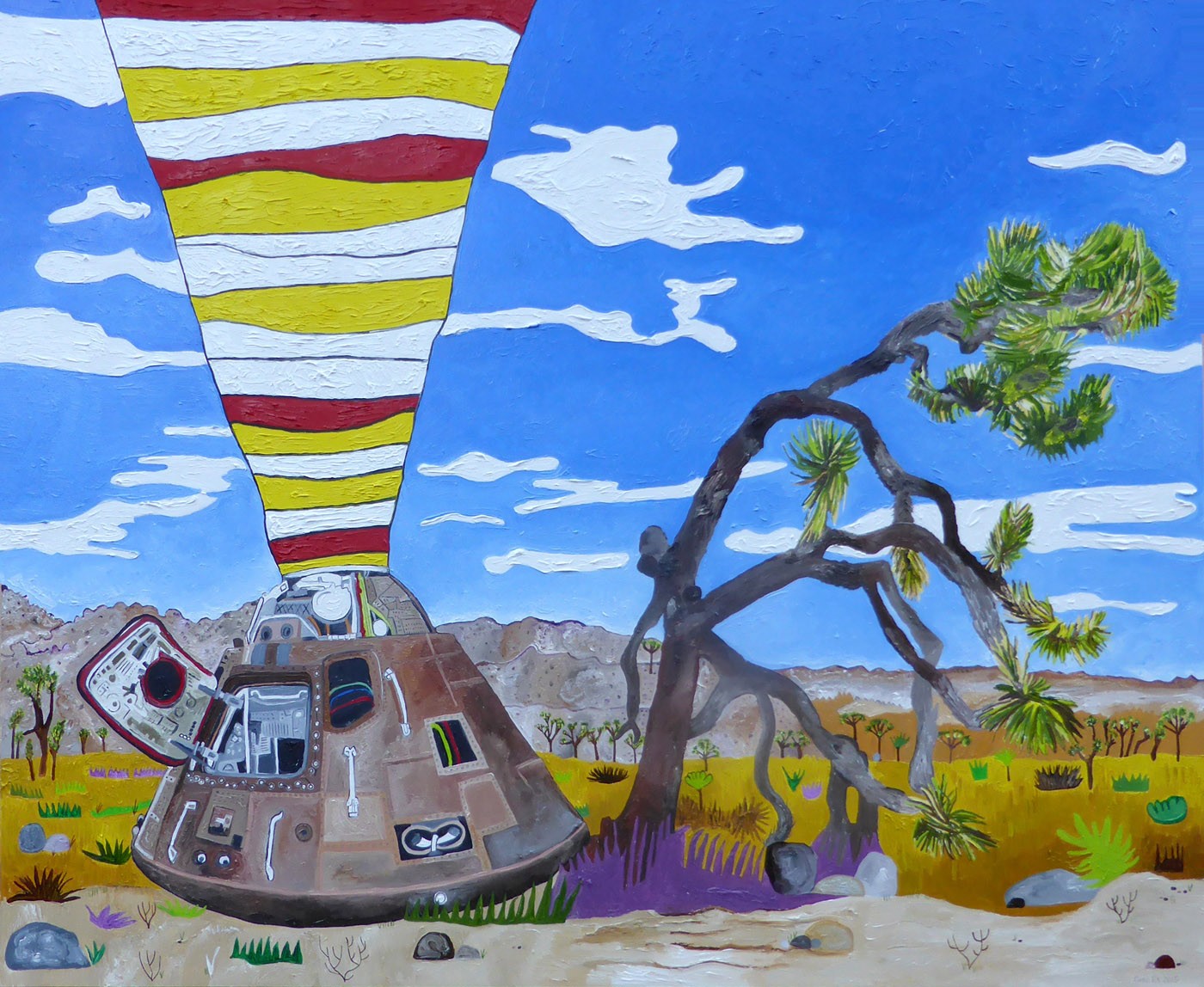
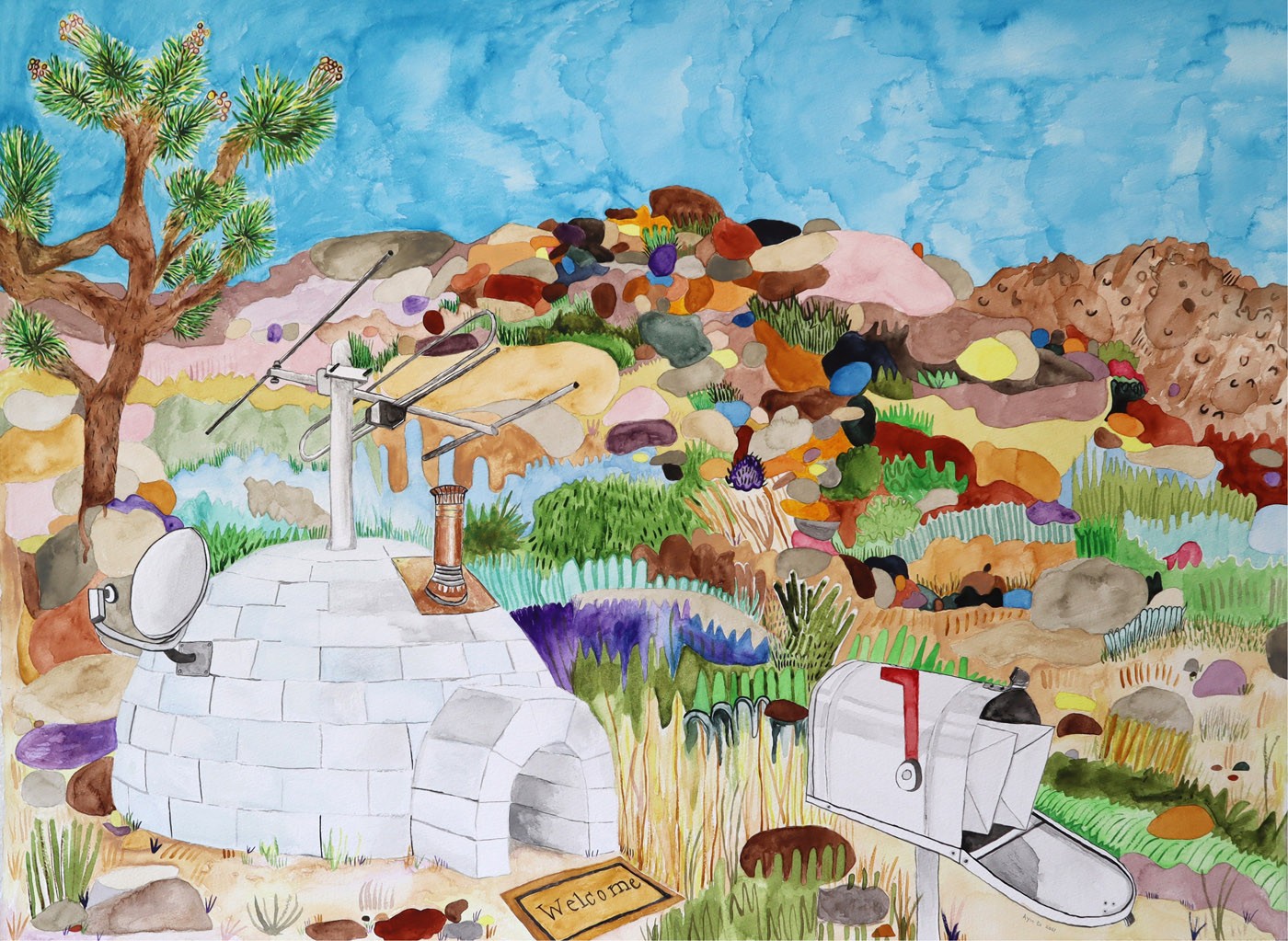
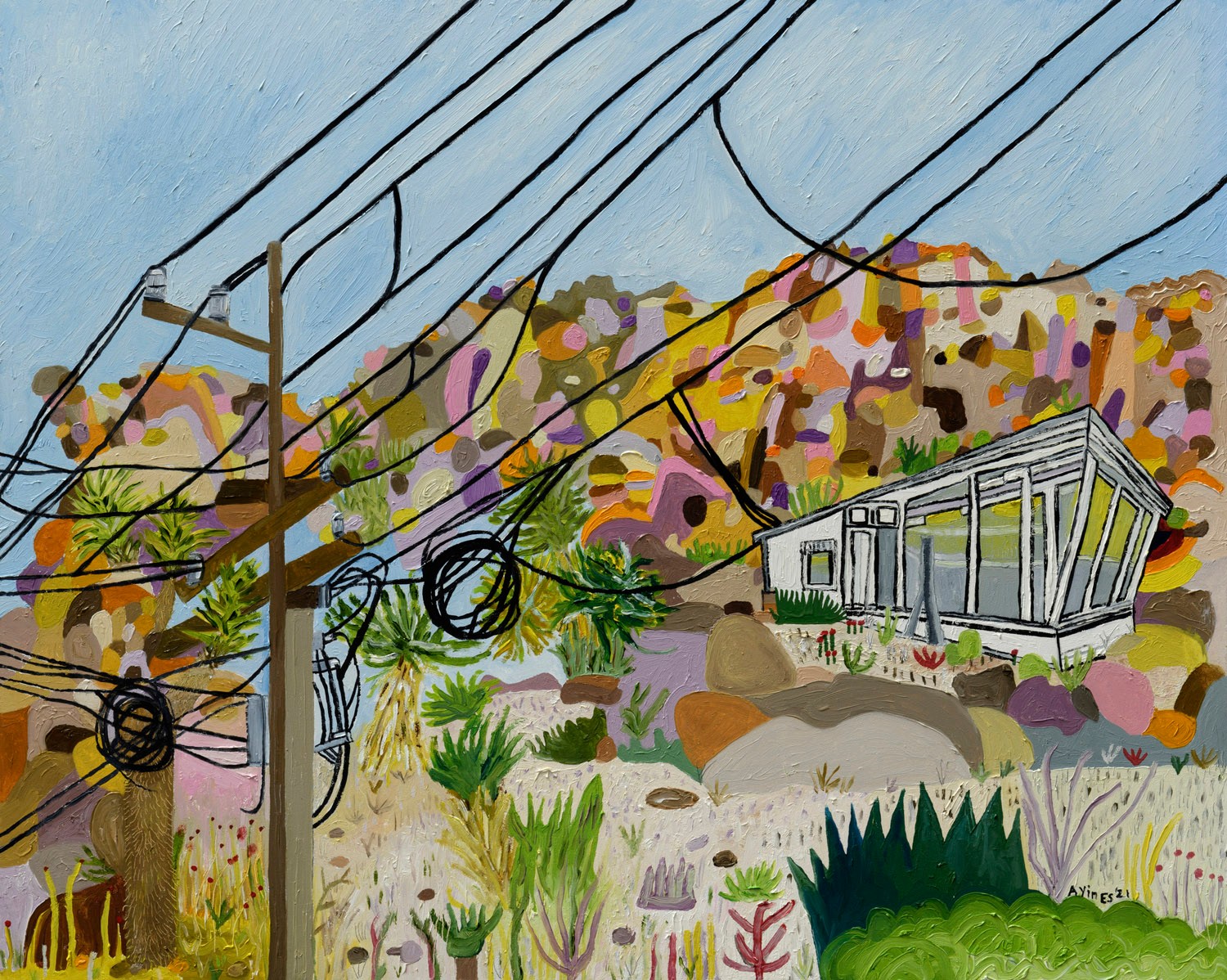
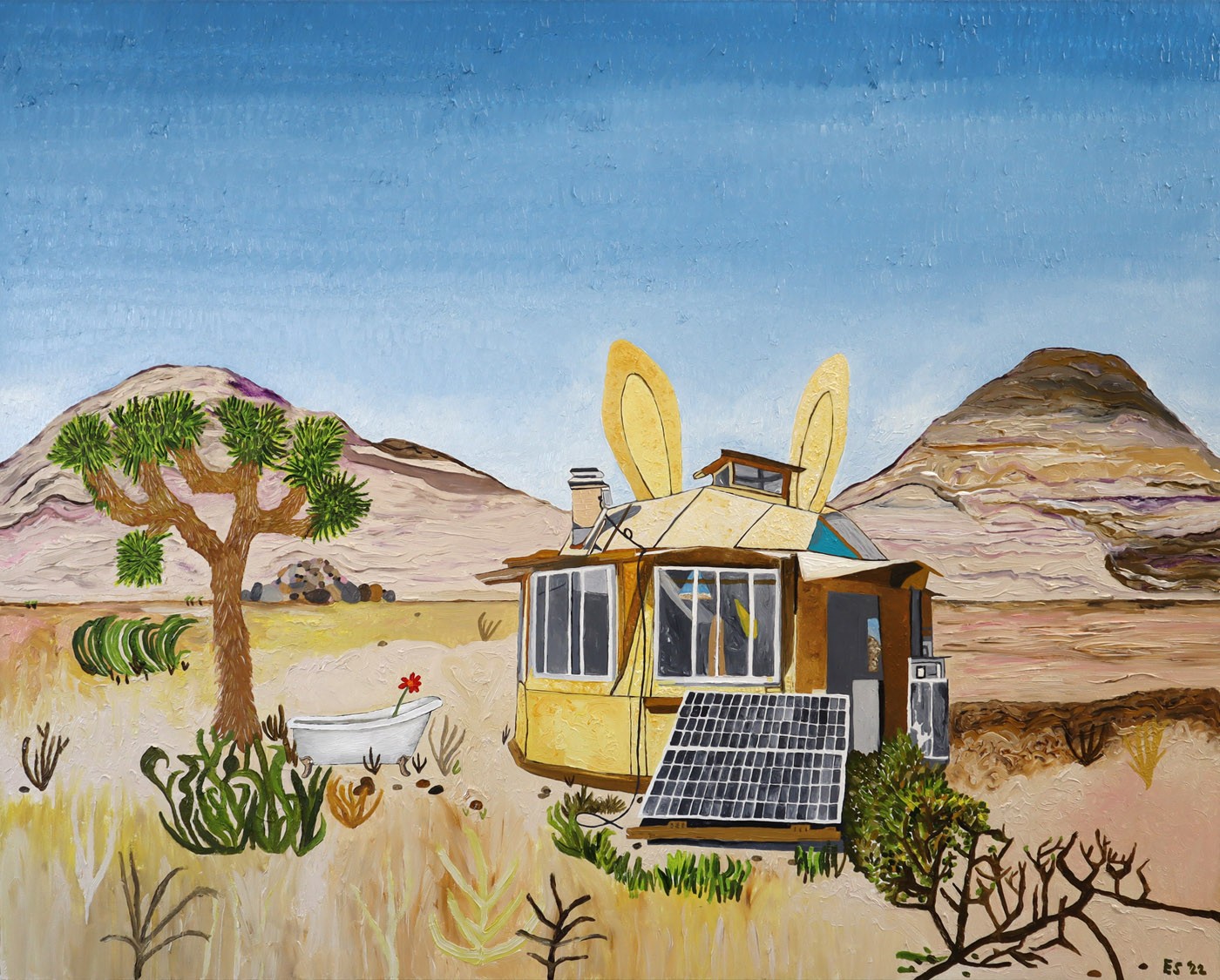
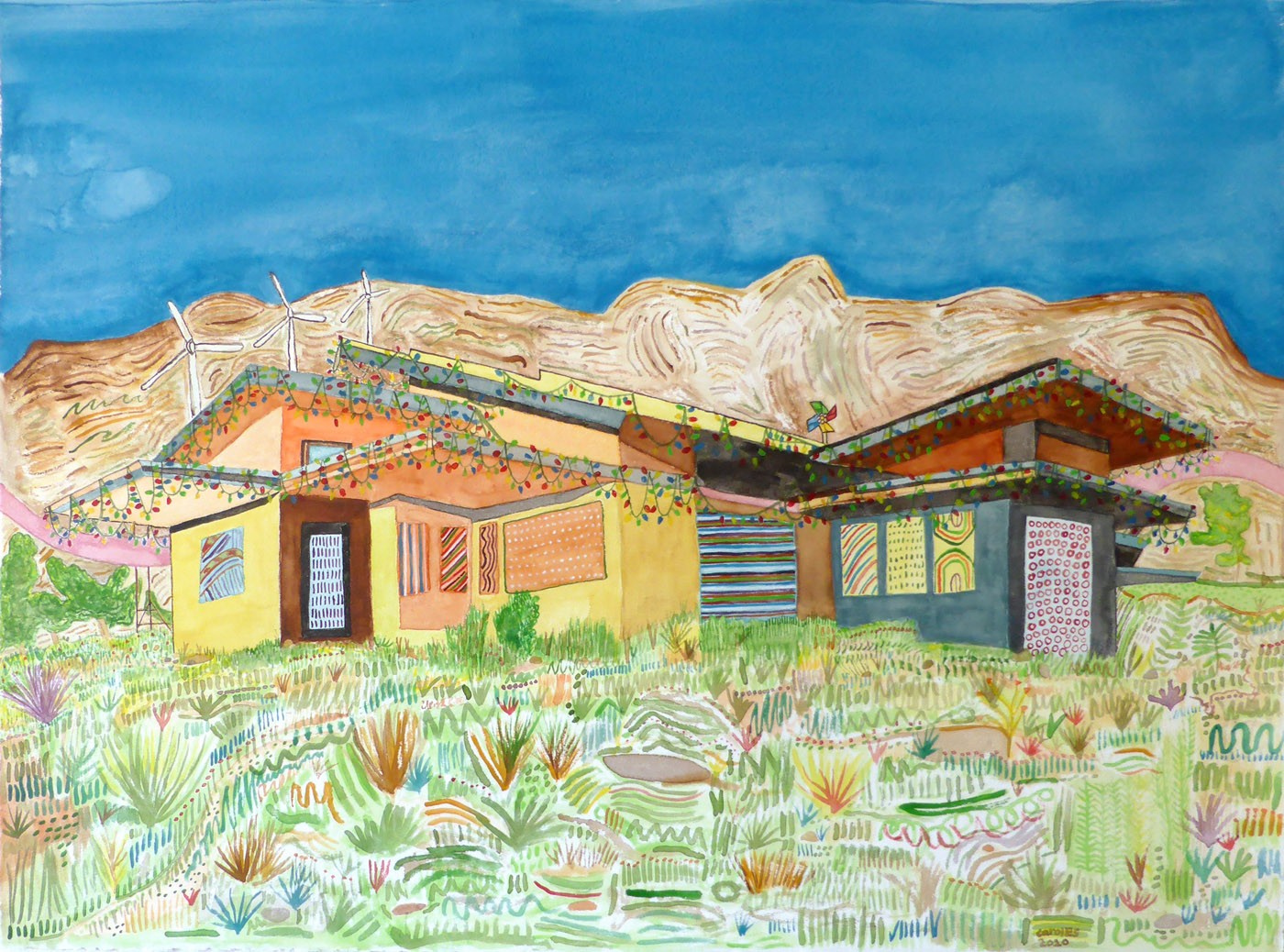
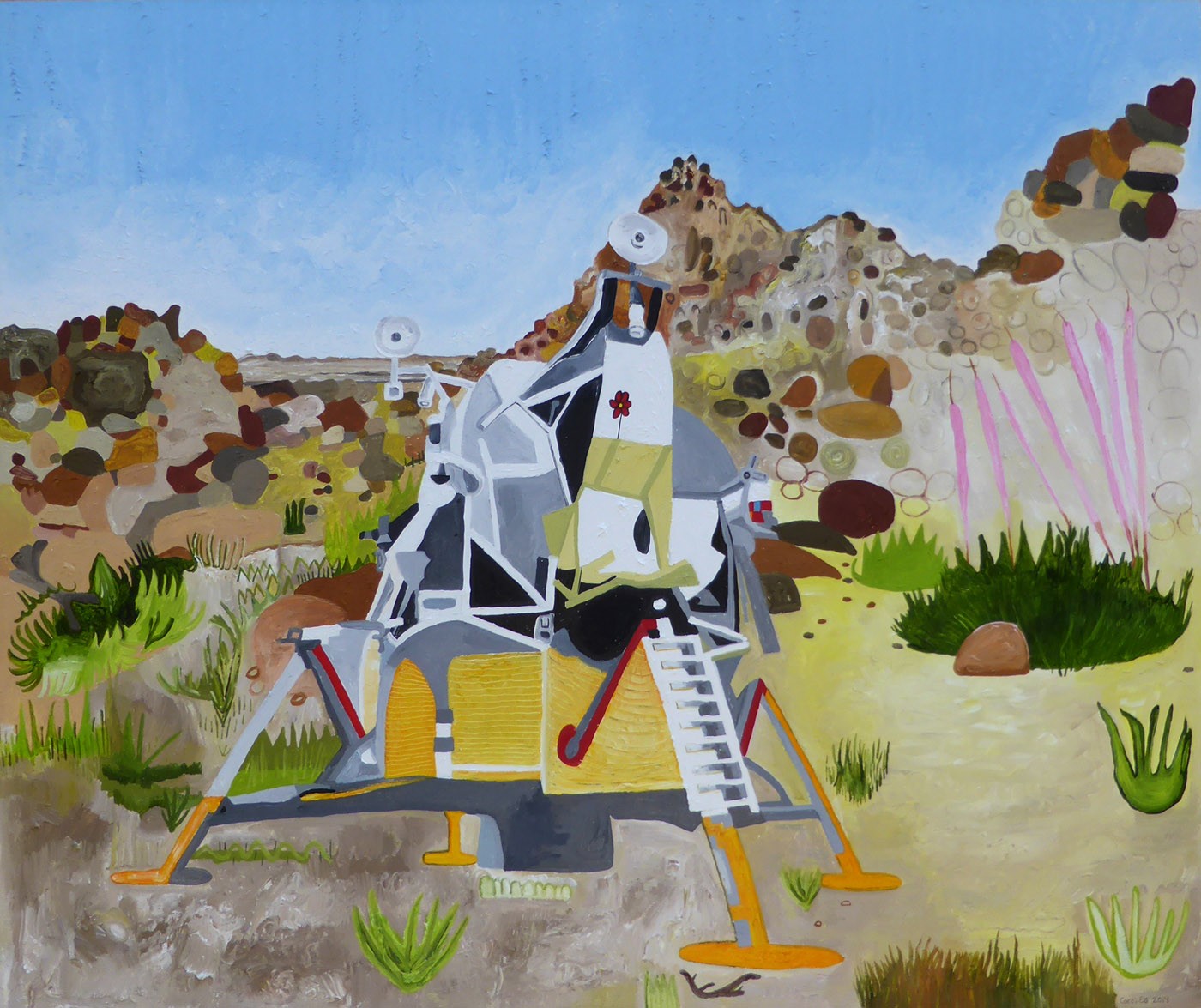
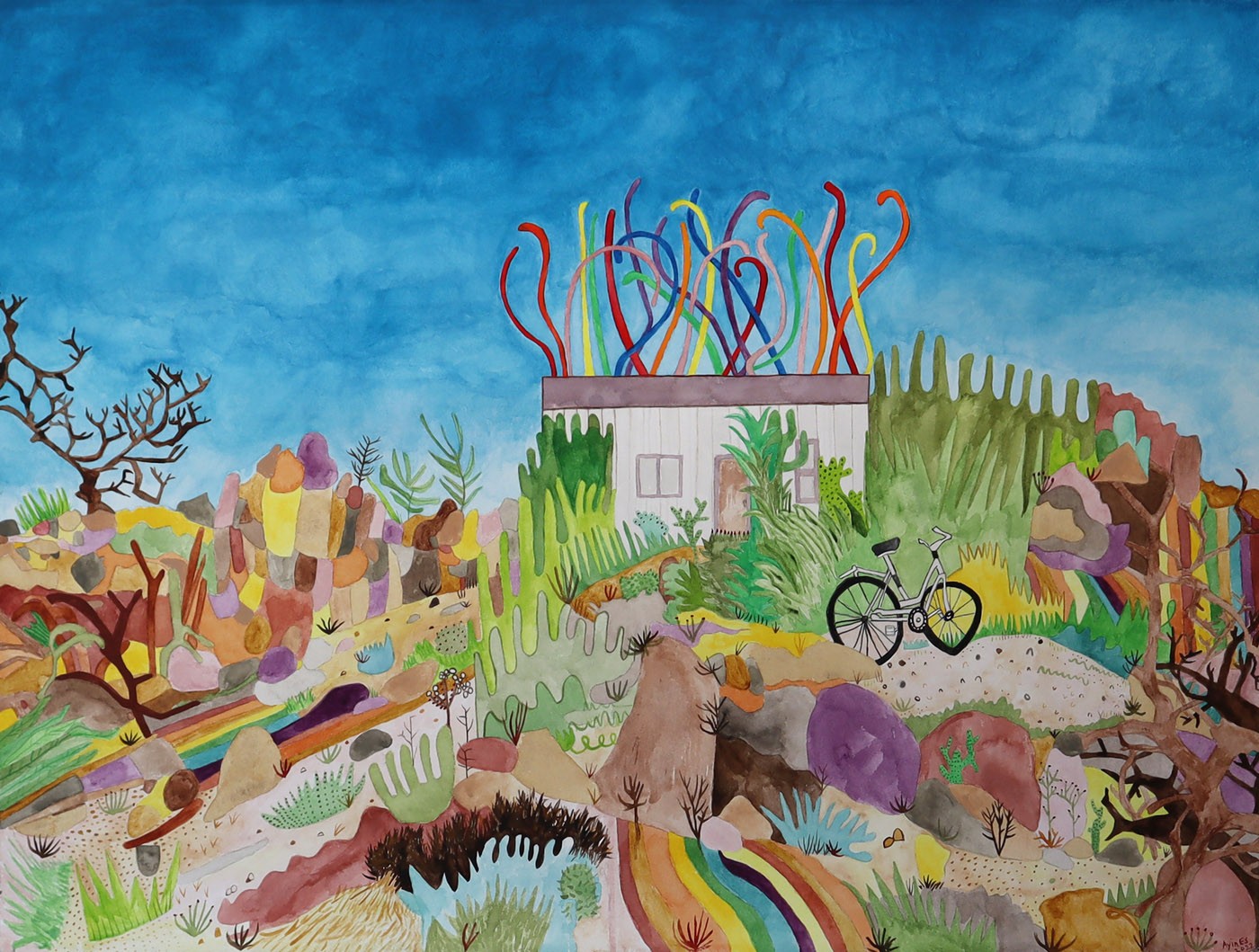
Image Credits
All images by the artist.

